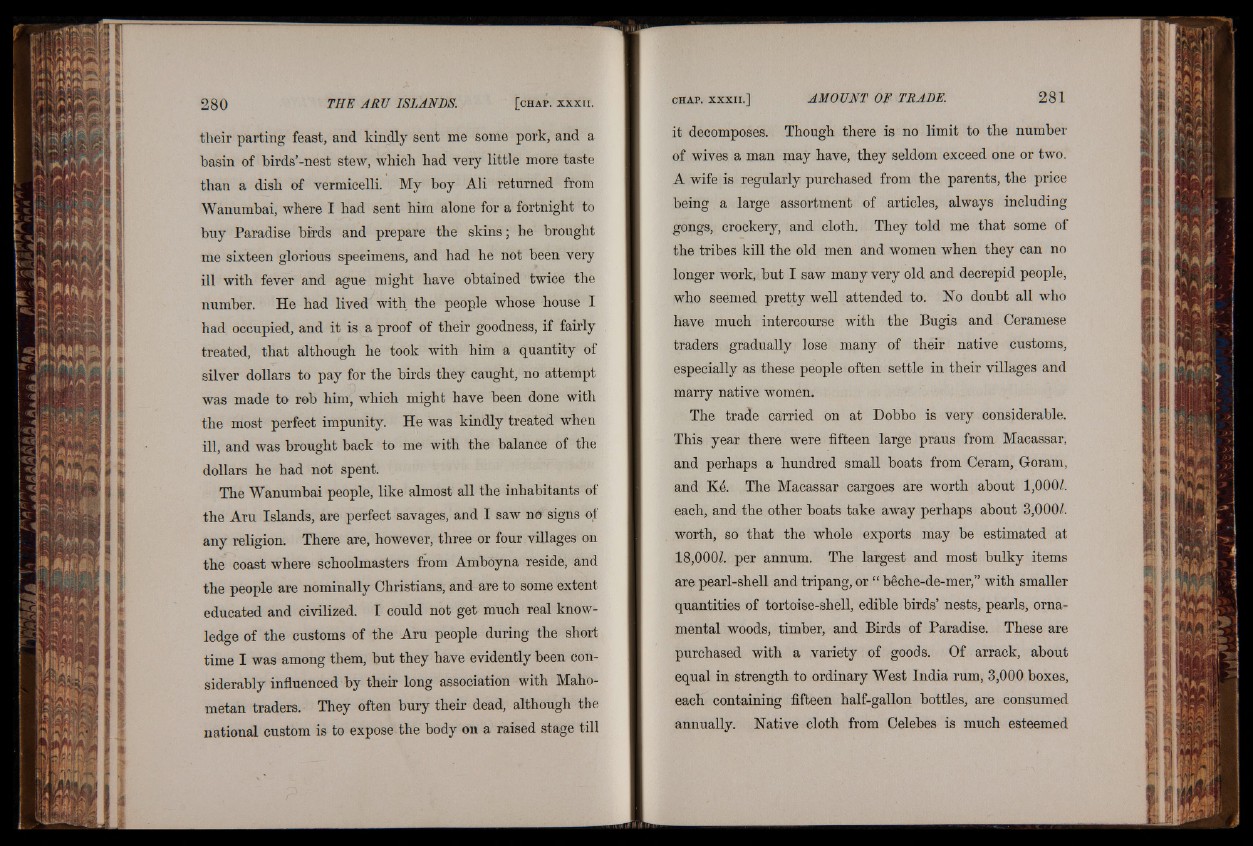
their parting feast, and kindly sent me some pork, and a
basin of birds’-nest stew, which had very little more taste
than a dish of vermicelli. My boy Ali returned from
Wanumbai, where I had sent him alone for a fortnight to
buy Paradise birds and prepare the skins; he brought
me sixteen glorious speeimens, and had he not been very
ill with fever and ague might have obtained twice the
number. He had lived with the people whose house I
had occupied, and it is a proof of their goodness, if fairly
treated, that although he took with him a quantity of
silver dollars to pay for the birds they caught, no attempt
was made to rob him, which might have been done with
the most perfect impunity. He was kindly treated when
ill, and was brought back to me with the balance of the
dollars he had not spent.
The Wanumbai people, like almost all the inhabitants of
the Aru Islands, are perfect savages, and I saw no signs of
any religion. There are, however, three or four villages on
the coast where schoolmasters from Amboyna reside, and
the people are nominally Christians, and are to some extent
educated and civilized. I could not get much real knowledge
of the customs of the Aru people during the short
time I was among them, but they have evidently been considerably
influenced by their long association with Mahometan
traders. They often bury their dead, although the
national custom is to expose the body on a raised stage till
it decomposes. Though there is no limit to the number
of wives a man may have, they seldom exceed one or two.
A wife is regularly purchased from the parents, the price
being a large assortment of articles, always including
gongs, crockery, and cloth. They told me that some of
the tribes kill the old men and women when they can no
longer work, but I saw many very old and decrepid people,
who seemed pretty well attended to. No doubt all who
have much intercourse with the Bugis and Ceramese
traders gradually lose many of their native customs,
especially as these people often settle in their villages and
marry native women.
The trade carried on at Dobbo is very considerable.
This year there were fifteen large praus from Macassar,
and perhaps a hundred small boats from Ceram, Groram,
and Ké. The Macassar cargoes are worth about 1,000/.
each, and the other boats take away perhaps about 3,000/.
worth, so that the whole exports may be estimated at
18,000/. per annum. The largest and most bulky items
are pearl-shell and tripang, or “ bêche-de-mer,” with smaller
quantities of tortoise-shell, edible birds’ nests, pearls, ornamental
woods, timber, and Birds of Paradise. These are
purchased with a variety of goods. Of arrack, about
equal in strength to ordinary West India rum, 3,000 boxes,
each containing fifteen half-gallon bottles, are consumed
annually. Native cloth from Celebes is much esteemed